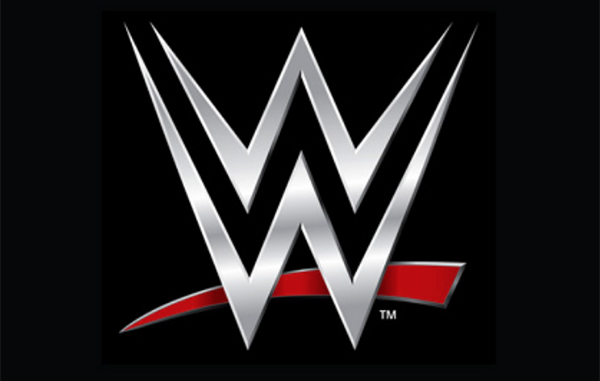
SPOTLIGHTED PODCAST ALERT (YOUR ARTICLE BEGINS A FEW INCHES DOWN)...
“If you do that [bleed], we lose a $10,000,000 sponsor.”
Those words attributed to Triple H by Jon Moxley during his explosive interview with PWTorch editor Wade Keller last weekend are a revealing look at where WWE’s priorities lie in 2019.
For the last decade it’s been an increasing battle of fans versus advertisers for the heart of WWE with fans largely coming out on the losing end. The reality though is that everything that’s happened in the last decade is 20 years in the making. Ever since they went public in October 1999, Vince McMahon has been working toward becoming a corporate giant.
Moxley’s interviews with Keller on the “Wade Keller Pro Wrestling Podcast” and Chris Jericho on the “Talk is Jericho” podcast were eyewitness testimony that confirmed Vince McMahon has achieved his ultimate goal. He has successfully transformed WWE from a successful wrestling promotion to an entertainment company that puts on wrestling shows. Throughout this corporatization, their Wall Street profile has grown as their ratings, customer satisfaction, and noted employee/contractor morale have all dropped. WWE has become the corporate monster.
At this point, a brief history lesson is necessary to put the rest of this piece into perspective. Every wrestling promotion, from the industry’s inception in the 1920s, was a private, usually family-owned business. Yes, there were small regional entities, but the point remains they were privately owned.
The only promotion that was in any way corporate was Jim Crockett Promotions when Ted Turner bought it, made it part of his empire, and turned it into World Championship Wrestling. That turned out to be a mistake as Turner executives, outside of Ted himself, saw WCW as an embarrassment to the corporate brand, particularly when it was losing money during the first six years under the Turner banner.
Though creative catastrophe ultimately led to WCW’s downfall, corporate greed in the form of expanding Nitro to three hours and adding another two-hour show (Thunder) were contributing factors. In summation, corporate and wrestling aren’t the greatest fit. Most wrestling promoters would probably understand that but then again Vince McMahon isn’t most wrestling promoters.
The difference between every other wrestling promoter and Vince McMahon is that Vince has never been content to just be a wrestling promoter. He showed it in early 1983-’84 when he took WWF national and began laying waste to all the regional territories. He compared himself them to Walt Disney. He showed it again in 1992 when he launched the World Bodybuilding Federation as a side project. And he showed once more when he took the WWF public in October 1999, aspiring to use the funds raised to expand into other ventures.
He has long wanted to be more entertainment purveyor than wrestling promoter to the point where he changed the name of the company from Titan Sports Inc. to World Wrestling Federation Entertainment as of the Initial Public Offering (IPO). The IPO also revealed the one thing standing in the way of Vince’s dream: Much like every other wrestling promoter, he was financially dependent on the fans.
According to PWTorch’s reporting on the IPO, WWE made $170 million in live event and TV taping ticket sales and an additional $81 million in merchandise sales from 1998 to ’99. By comparison, they were getting $500,000 a week from TNN when they debuted on that network in September 2000. That was an increase, which means USA was paying them less than $500,000 a week at the time of the IPO.
Fast-forward 20 years and WWE will be making a combined $468 million a year from Fox and NBCU when the new TV deals take effect in October. Couple that with between $40 and $50 million per event WWE makes in its controversial two-event-per-year deal with Saudi Arabia and that’s $548-568 million. That’s not counting whatever advertising revenue they pick up.
By comparison, they made $361.3 million from their fans’ pockets last year. Given the current situation, that’s likely to trend down a little bit this year. Still, the bulk of WWE’s profits come from sources other than fans’ pocketbooks. That’s the kind of financial independence Vince needed to fully realize his dream. Sure, their money is important to him but he’s not beholden to them for survival and, as such, their satisfaction has become less and less of a priority regardless of the lip service they pay to “serving the WWE Universe.”
It’s ironic because for decades the wrestling business was built on satisfying its loyal fanbase, but with corporatization there are other people whose satisfaction is more important.
Even before he achieved financial independence, he achieved a monopoly in the business. After purchasing his top rivals WCW and ECW in 2001, Vince was able do what he wanted as fans were left with few options to access wrestling on the same level as WWE. He began the corporatization process in earnest by hiring George Barrios and Michelle Wilson as co-presidents in 2008 and 2009.
Together, Barrios and Wilson, neither of whom had any experience with a wrestling company, helped lead a rebranding of the WWE in a transparent attempt to appeal to more advertisers as well as the mainstream entertainment industry. One of the first major steps of this rebranding was the changing of WWE’S longtime TV-14 rating to TV-PG. With that change came several contradictions, chief among them the fact the change was an overt move to cater to children and families while their key television demographic stayed at the 18-49 range. Figuring out how to entertain both while not offending one or insulting the other has been something Vince struggles with to this day.
As part of this rebranding and change to a TV-PG format, WWE creative under the dictatorial supervision of Vince McMahon underwent a massive sanitization. It went beyond just banning chairshots to the head and toning down the violence, though. The product became blander, announcers began pushing corporate language like WWE Universe and “sports-entertainment,” and the brand replaced individual talent as the biggest star with WWE’S reach (social media and otherwise) as well as its philanthropy being the focal point of multiple segments a week.
As time has passed, the creative process has gotten more dictatorial and less in touch with the fanbase. This is the world that Jon Moxley gives us a glimpse of. Sure, we know all about the tight scripting and Vince’s juvenile sense of humor, but hearing Moxley describe his experience in his words is powerful and demonstrates just how far gone creative is.
One of the more profound incidents Moxely recalls is one in which he and one of the writers re-wrote a script because it had the words “pooper-scooper” in it. Vince sent back notes saying that Moxley needed to read the script verbatim and not rewrite it. Later, in a meeting in his office Vince told Moxley he has “creative license.” Moxley was surprised by this statement because he didn’t feel like he had creative license.
Throughout the different stories Moxley told, the common thread was constraint. He felt like the WWE creative process constrained him and that he couldn’t give his voice to his own character. That’s just another byproduct of this corporatization. The creative process features little or no input from the wrestlers on their own characters. A team of writers with very little experience in wrestling are tasked with manufacturing a character that can get Vince’s seal of approval. It’s a completely mechanized process in which all the creativity is sucked out before it gets to television. Neither the wrestlers themselves nor the fans are served.
What is served is the bottom line. WWE is on track to make a billion dollars in revenue this year. A recent article in Variety touts the fact that WWE’s image has changed for the better in the eyes of the advertisers who are more willing to work with them. TV networks are desperate for live entertainment and are willing to pay premium prices for it regardless of the quality. A murderous, autocratic regime is more than willing to shell out lots of its blood-soaked cash for WWE’s “entertainment” and to project to its citizens and the world that their regime (and all that comes with it) is embraced and accepted by the larger world.
The question is how long can this be sustained. Fans are wholly dissatisfied and, in many cases, tuning out which isn’t good news for networks or advertisers. This downward trend has led to multiple recent hot-shot booking moves to buttress the ratings, most recently the tease of Brock Lesnar cashing-in his Money in the Bank briefcase with no intent to make good on the tease.
Meanwhile, wrestlers are asking for their releases or sitting out their contract because they feel creatively stifled or misused. Despite this, there hasn’t been a move to change even a little bit of this toxic, creativity-killing environment Moxley escaped from.
Sure, USA and Fox have put pressure on Vince to get the ratings up, but they’re just looking for a quick fix and don’t understand how wrestling really works. Frankly, that’s not their job anyway. It’s WWE’s job to recognize that there is a serious problem and do something about it, but they won’t. As long as they can get money from TV networks and oppressive regimes, and attract big advertisers the corporate monster will keep going. That leaves one question: How long before the corporate monster consumes itself?




Superbly stated, I’m so glad for PWT. What does a longtime fan do? Sticking to NXT and NXT UK…..
I have watched wrestling for almost 30 years and I have never ever seen as bad a product as WWE has been for the last several years. This period of time makes the 1993-1996 look like absolute gold and WCW from 2000 entertaining.
Who knows when the Titanic will hit the iceberg? But with them making hand over fist, they could not care any less about quality of the product as long as the sheep and marks keeping putting money into the machine. The network, as good as it is, is part of the machine as well.
People probably keep watching it out of habit and to see if it will get good again, but they are wasting their time because of who they are trying to appease.
I am not coming back because doing business with a country that makes women practically invisible is anything but “family” entertainment.